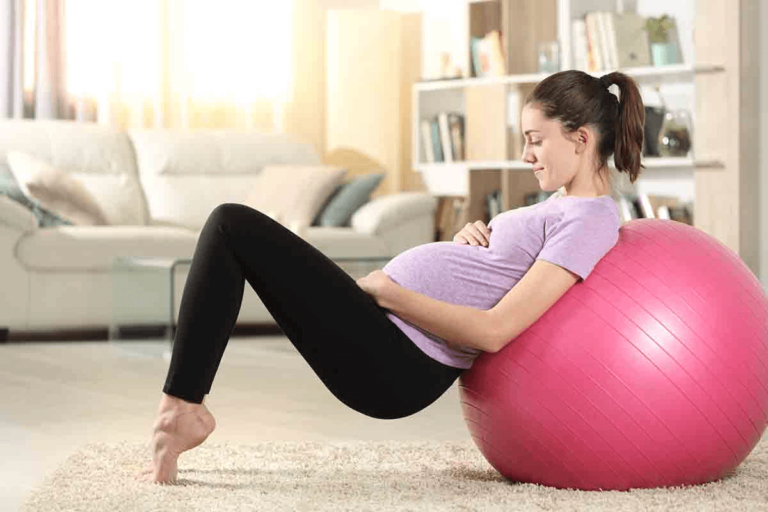How Long Before Pelvic Floor Exercises Start to Work?

If you’re doing Kegel exercises (also known as pelvic floor exercises), it can take up to 12 weeks before you begin to notice significant improvement. However, the time it takes to see results can vary depending on several factors:
Factors That Affect Results:
- Correct Technique: The effectiveness of Kegels depends on whether you’re doing them correctly. The key is to focus on a “squeeze and lift” action, as if you’re trying to stop the flow of urine and hold in gas at the same time.
- Consistency: You need to do your Kegels every day, ideally three times a day, to build strength in your pelvic floor muscles. Consistency is crucial for seeing long-term improvement.
Tips to Stay Consistent
As a busy new mom, it’s easy to forget to do your Kegels regularly. One solution is to set up reminders, either with the help of a pelvic floor exercise app or by associating the exercises with daily tasks. For example, you could do them while changing your baby’s diaper or while waiting for the kettle to boil.
Also read: Can Pelvic Floor Exercises Enhance Your Sex Life?
Reasons You May Not See Improvement
If you’ve been diligently doing your Kegels for several weeks but aren’t noticing any changes, there could be a few reasons why:
- Incorrect Technique: You may be bearing down on your pelvic floor instead of lifting it.
- Weak Pelvic Floor Muscles: Your muscles might be too weak to contract effectively.
- Vaginal Prolapse: This occurs when one or more pelvic organs shift and press against the vaginal wall.
- Postpartum Injury: You may have sustained an injury during childbirth or pregnancy that hasn’t healed properly.
It’s important to note that Kegels alone may not be the solution if you have other underlying issues. For instance, problems like constipation, bladder or bowel dysfunction, inflammation, or infections can also interfere with pelvic floor function. In such cases, addressing these concerns first may be necessary for Kegels to work effectively.
Pelvic Floor Myths: What Not to Believe
There are a lot of misconceptions about pelvic floor issues, especially after childbirth. Here are some common myths:
- “Incontinence is just a part of having a baby.”
This is false. Incontinence doesn’t have to be an inevitable result of pregnancy or childbirth, and pelvic floor exercises can make a significant difference. - “I had a C-section, so I don’t need Kegels.”
Even if you had a C-section, your pelvic floor still went through stress during pregnancy as it supported the growing baby. Kegels are essential for recovery. - “I’m too busy.”
It’s understandable that life can get hectic, especially after becoming a mom, but neglecting your pelvic floor health could make things more difficult in the long run. Without attention to your pelvic floor, you may experience long-term incontinence or reduced sexual satisfaction.
How to Avoid Common Kegel Mistakes
One common mistake is practicing Kegels by stopping the flow of urine while on the toilet. Doing so regularly can interfere with proper bladder function and even increase the risk of urinary tract infections (UTIs). Instead, focus on doing Kegels during everyday activities, but avoid the bathroom while practicing.
What to Do If You Don’t See Results
If you’ve been performing Kegel exercises for three months without any noticeable improvement, don’t give up. It doesn’t mean there’s no hope—it just means you may need a professional assessment.
At this point, it’s wise to schedule a visit with your GP or ask for a referral to a women’s health physiotherapist. They can evaluate whether you’re performing the exercises correctly, assess your pelvic floor strength, and tailor an individual treatment plan based on your specific needs.
Final Thoughts
Pelvic floor exercises can be incredibly effective, but like any fitness routine, they require dedication, patience, and correct technique. With regular practice, you should start seeing improvement within 12 weeks. However, if you’re not making progress, don’t hesitate to seek professional help to ensure you’re on the right track.
Also read: I’m 11 Weeks Pregnant and Leak Urine When I Cough or Run – Why?






